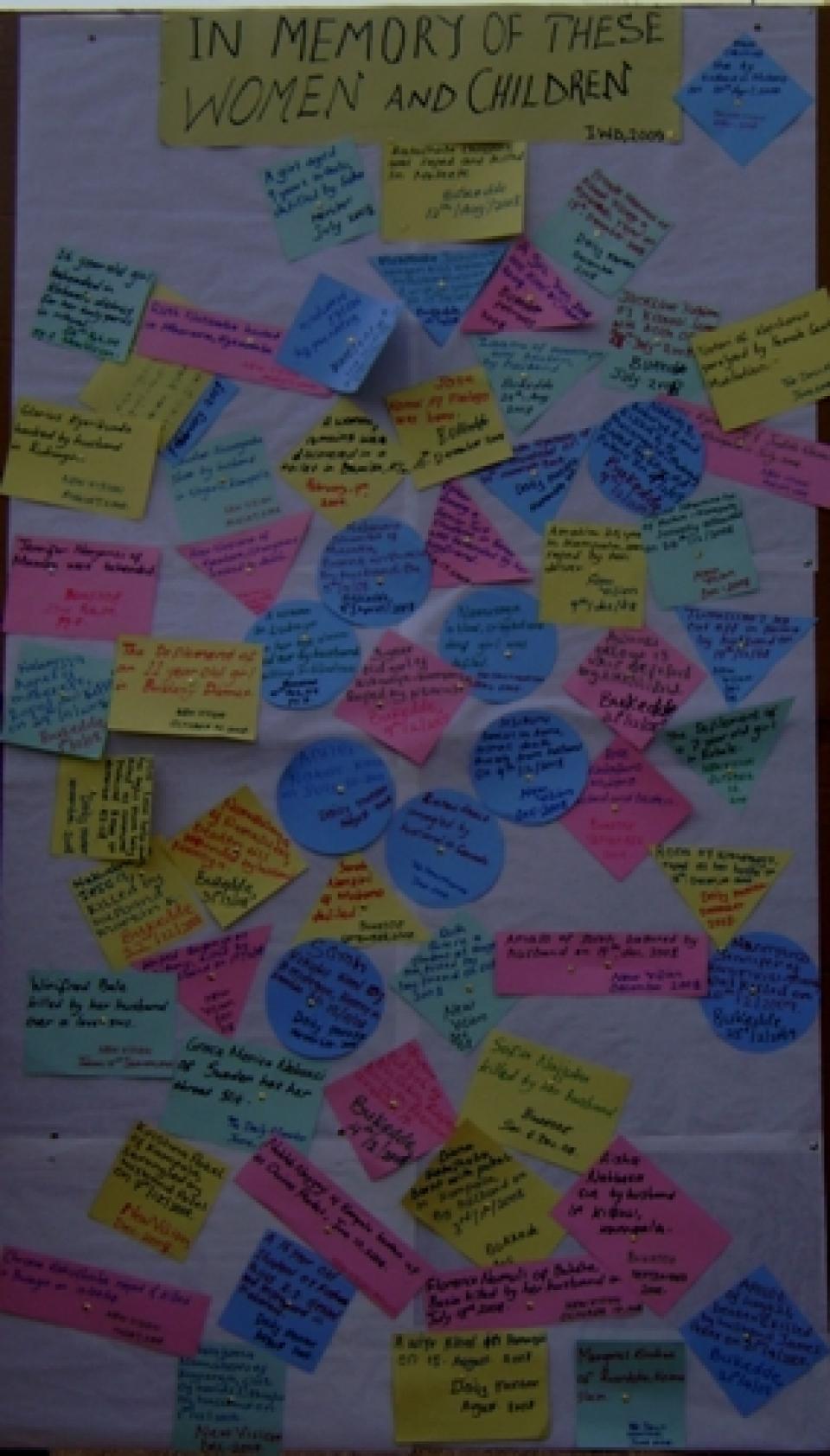
In the weeks leading up to the Commission on the Status of Women (4-15 March) violence against women I watched and read and listened and wept over the brutal gang rape and murder of Anene Booysens. As I remembered a similar gang rape and murder of another young woman – Valencia Farmer- 14 years ago, and read each day of more rape and sexual assault all around the country, I thought my heart would crack open and spill out all the fear, and powerlessness and horror and sadness. It didn’t crack open, but the hot tears that ran down my cheeks every night brought some relief.
So you can imagine my state of mind as I sat in the High Level Panel on Eliminating Violence Against Women on the first day of the CSW and I listened to state after state talking about the status and what they have instituted nationally to end violence against women. From the Cameroonian minister speaking about ‘queens for peace’ – wives of traditional leaders who are influencing their husbands in their communities to the minister from Greece talking about how the recession and austerity measures threaten the gains made by women to the minister from Panama who said that the fight for equality is written in the blood of women and called for a move from words to actions… it all began to sound the same; with the majority of states talking about working with men and boys as ‘key’ to ending violence against women.
It took the input from the Ecuadorian delegation who spoke about unequal power rooted in macho culture that feeds violence against women and girls, and that was practically the only government (in the panel I was in) to mention sexual and reproductive health rights and sexual orientation and gender identity to lift me from my dark and rather pessimistic mood.
Just as I wondered if delegations would talk about ICTs and VAW, my other colleague at the CSW skyped to say that the Ghanaian minister had just raised concern over more children are being exposed to pornography via ICTs and sexting and sexual harassment being a big issue for women and girls. Given our own advocacy and aim at the CSW, this was very significant, as was the closing remarks from a civil society representative – Ivy Josiah – in the panel I was in. Josiah identified gaps in the statements of governments and the expert panel. One of these was the ‘emerging issue of technology which, while we know it is being used to combat VAW, is also being used to perpetrate VAW’.
Having last been at the CSW in 2011, it was much ‘easier’ to talk about VAW and ICTs as a critical issue. Before, we had to explain and substantiate much more why this was an important issue – this time round, not only did many more women’s rights activists appear to support the issue, but it appeared to be on some government agenda’s as well – including an Australian government side event titled ‘Using new technology and social media to address violence against women and girls’ and a joint event hosted by the government of Turkey, Vodafone Turkey Foundation and the Women Entrepreneurs Association of Turkey titled ‘Best practices in turkey: women movement in technology’.
A South African government hosted side event titled, ‘Gender-based violence: a call for multi-sectoral interventions and action’ also picked up technology related forms of violence against women as the Ghanaian minister asked for advice from the South African government about how to respond to ‘pornographic material and e-gender violence’ as the Ghana police service ‘doesn’t have a dedicated department to address this.
South Africa’s influential role in African geopolitics cannot be underestimated. It is precisely this influence that set off alarm bells as I listened to the response by SA’s Film and Publications Board representative at the event. What worried me was the lumping together of all ‘e-gender violence’ with child pornography – the response to which (rightly so) is to criminalize and prosecute. This not only invisibilises the harm experienced by women who survive technology related forms of violence, but can also mean that these violations are not prioritised in prevention and response strategies – including for example training of police and judicial officials – and women who experience these violations have no redress. Secondly, there is a real danger that the anxiety around child pornography and harm to children – as the APC EROTICS research has shown – can lead to censorship and regulation in the name of ‘protection’, which will create more problems for women, not solve them. In South Africa, we have already seen this happening in practice.
These tensions were clearly captured in the CSW’s Expert Meeting Group Report that states (paragraph 30):
‘Violence in the virtual space and the wider issues of how women and girls are objectified in the media has particular implications for girls and younger women, who are much more like to engage with social networking sites, instant messaging, etc. Despite the range of violations, incidents can be hard to prosecute, especially as the Internet is not limited to nation spaces. There are also real challenges around balancing the right to freedom of expression with the right to be protected from discrimination.”
This recognition of the need to balance competing rights is critical for our own advocacy and work to end violence against women. The EGM report, as well as the direct call for states to take action made by the WG on Discrimination Against Women in Law and Public Life at the CSW are important as they signal a greater awareness of the relationship between VAW and ICTs and a range of rights.
This is why, in the face of a weakening UN system, processes like the Commission on the Status of Women are important. While it might seem to some that it is a wasted exercise when ultimately the only win is a few words – a paragraph if you are lucky – in the final conclusions. But it is these few words that are so important in terms of getting recognition, action and some level of state accountability to prevent and respond to violence against women. So that Anene, Valencia and the millions of other women who don’t survive – and those who do – can find justice.
- 6489 views






Add new comment